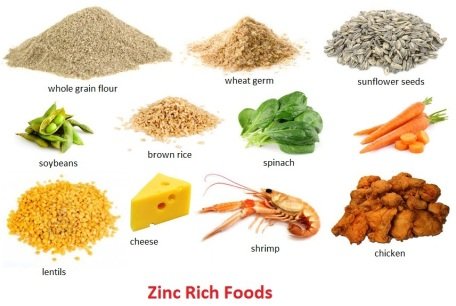As we have already discussed, what you fuel your body with is the resource it has to defend you from pathogenic infection and fight exposure to viral or bacterial contact. Last week we discussed Vitamin C, Beta-Carotene, the Carotenoids, and Vitamin A. As the title states, today we will delve into minerals and antioxidants,, how they affect the body and immune system, and the best way to intake them for optimized immunity.
Minerals
Two minerals that are imperative for a strong immune response, healthy and functioning immune system, and increased ability to fight infection are Selenium and Zinc. Selenium has been shown to benefit people with compromised immune systems and decreases risk of infection and other complications. For healthy people, having a normal dosage of selenium is all that is needed for proper immune health, though a diet high in selenium has been found to reduce the risk of some cancers.
Some great sources of selenium include mushrooms, whole grains, brown rice, egg yolks, cottage cheese, sunflower seeds, garlic, and Brazil nuts.

A zinc deficiency, on the other hand, has reflected a poorer immune response in normal and abnormal/compromised immune systems because zinc is necessary in the production and activation of some white blood cells (fight the infection directly) and correlates with increase immune functionality. Zinc has also been found to increase overall health and, in some instances, prevent the common cold. But be careful! More than 75 supplemented mg per day can actually inhibit immune function, and larger doses can even be toxic. Though zinc should be supplemented in the case of a deficiency because of its vitality not only in immune function but throughout the body, the healthy adult should stick to trying to increase zinc in their diet (again, you can’t ‘overdose’ dietary zinc!). The optimal level is 15-25 mg per day
Best way to ensure sufficient zinc is to include vitamin and mineral-fortified cereals (Total), seeds, nuts, mushrooms, wild rice, and beans to your diet.

Antioxidants
We mentioned antioxidants when talking about immunity-improving vitamins, but many things, supplements and foods, are marketed as antioxidizing. When your cells undergo respiration to form new cells, they use oxygen and create radicals along the process. Radicals are unstable atoms or molecules that are formed through certain sets of synthesis and reduction reactions, which occur in cellular respiration (yes, we need oxygen to live but it is toxic and slowly killing us). Oxidation is a cause of atherosclerosis and hardened arteries, the development of plaque in blood vessels that leads to high blood pressure, heart disease, and stroke, and other symptoms of aging from cell and tissue damage like wrinkles. Vitamin E and the already mentioned Vitamin C, carotenoids, and selenium act as antioxidants and may lower your risk of heart disease.
While many antioxidant pills and supplements are marketed, studies show there is likely no benefit to taking them. The current recommendation is to instead enrich your diet (as usual) with fruits, vegetables, whole grains, nuts, and seeds (really starting to see a trend here!).
Thanks for reading and I hope you’ll think about adding more whole foods to your diet considering it could save you from Penn State Plague season. Tune in next time for grains, flax, and fats!
– davina (:
You must be logged in to post a comment.